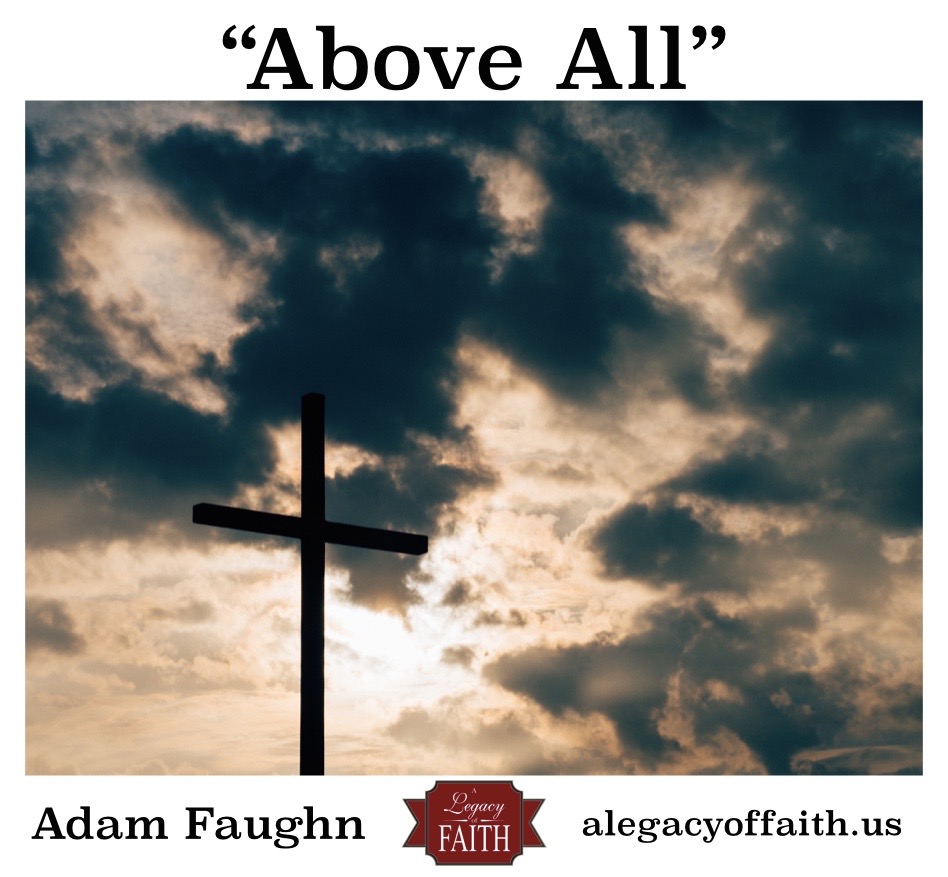“Above All”
The original idea was not to write a song, but those of us who love the hymn “Above All” are thankful it became one.
Paul Baloche sat down one day and said he just wanted to worship God in a personal way. He said that, as he did, he started focusing on things that people consider important, but that Christ was so much greater than any of those things; things like power, fame, riches, and even wisdom. He said that, as that thought captured his mind, he just praised God with these words: “Lord, you are above all kingdoms, above all, thrones, above all wonders the world has ever known.”
He realized that this would make a good song, though that was not his original purpose. For about a year, Paul tried to write a chorus that went along with the short verses he had written, but nothing fit.
Finally, he sat down with a songwriter named Lenny LeBlanc. Paul gave him around 20 song ideas, but only this unfinished song, “Above All,” caught his attention. Remember, this was after a year of trying to think of a chorus. Literally, the next day, Lenny LeBlanc said, “What about, ‘Crucified, laid behind a stone…like a rose trampled on the ground.’” At that point, that’s all he had, but it was exactly what Paul had been looking for.
In his own words, Paul said his reaction was this: “What a contrast, what a picture. That’s Jesus. The One who is and always will be above us, was willing to be crucified and rejected, just to demonstrate His love for an unappreciative world.”
Both Paul and Lenny ironed out the final wording of this song, and said that, once they realized it was complete, they read through it again and wept because of how much it made them think of Jesus and what He did for a world that, in the words of the song, trampled Him like a rose on the ground.
The song “Above All” finds its power in contrast. The verses speak of how majestic and powerful Christ before He was born into this world. He was above all.
John opens his account of the Gospel by showing us that Jesus was, in fact, God from the very beginning. “In the beginning was the Word, and the Word was with God, and the Word was God. He was in the beginning with God. All things were made through Him, and without Him was not any thing made that was made. In Him was life, and the life was the light of men. The light shines in the darkness, and the darkness has not overcome it” (John 1:1-5).
That’s what Christ gave up when He came to this earth. Paul would show us that. In Philippians 2, Paul was telling the congregation at Philippi to avoid rivalry and conceit. And the example he gives is none other than Jesus Himself, “Who, though He was in the form of God did not count equality with God a thing to be grasped, but made himself nothing, taking the form of a servant, being born in the likeness of men (vv.6-7).
Jesus was God. He was above all. But He gave all of that up to come to this world. Not only that, He was “despised and rejected of men,” as Isaiah had prophesied in chapter 53. He did not come to this world as some guru who stood on the mountain tops. He wasn’t some handsome person that people would be drawn to for all the wrong and worldly reasons. Instead, He came in a lowly manner and tried to point people back to being true followers of God.
And people did not like it. They rejected the light because they loved darkness more than the light. Paul would go on to say in Philippians 2: “And being found in human form, He humbled himself by becoming obedient to the point of death, even death on a cross” (v.8).
But why? Why did Jesus do that? I love the way the song “Above All” puts it. “Like a rose trampled on the ground, you took the fall and thought of me above all.”
“You took the fall.” What a powerful thought!! Jesus went through all that pain and suffering so you and I don’t have to! He took our place. Scholars use the fancy phrase “substitutionary atonement,” but the idea is simply that Jesus took my place of suffering. And He did so because He thought of me above all.
Jesus did not count even equality with God as more important than my salvation, and yours. What a Savior! What a Lord!
Do you think of Him above all?
—————
AUTHOR: Adam Faughn



